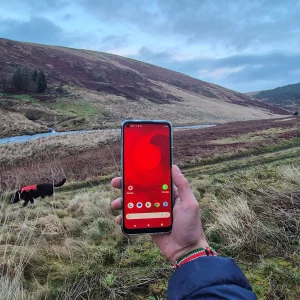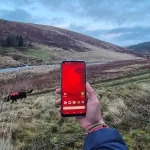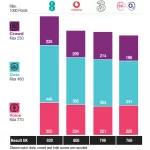Sponsored Links
ISP Entanet UK Criticises Irish Court Over Unlawful Internet P2P File Sharing
Posted: 20th Oct, 2010 By: MarkJ
 Communications and networking provider Entanet has waded into last week's ruling by Ireland's High Court (here), where copyright holders tried and failed to force a local broadband ISP (UPC) into adopting a "Three Strikes" system of warning and disconnection for customers suspected of involvement with "illegal" P2P file sharing.
Communications and networking provider Entanet has waded into last week's ruling by Ireland's High Court (here), where copyright holders tried and failed to force a local broadband ISP (UPC) into adopting a "Three Strikes" system of warning and disconnection for customers suspected of involvement with "illegal" P2P file sharing.Entanet’s Head of Marketing, Darren Farnden, said:
"As we have repeatedly stated, we do not in any way condone illegal file sharing and agree with the music industry that the issue needs to be tackled. However, we do not believe that termination of service and disconnection from the Internet is the appropriate way to do this or a proportionate punishment.
We also have ongoing concerns over the way in which alleged infringers are identified – by IP address – as they can be easily spoofed and hacked. Yet despite ISPs from across the globe arguing these points, the respective governments seem insistent on implementing such policies to satisfy the complaints made by the music and entertainment industries."
"As we have repeatedly stated, we do not in any way condone illegal file sharing and agree with the music industry that the issue needs to be tackled. However, we do not believe that termination of service and disconnection from the Internet is the appropriate way to do this or a proportionate punishment.
We also have ongoing concerns over the way in which alleged infringers are identified – by IP address – as they can be easily spoofed and hacked. Yet despite ISPs from across the globe arguing these points, the respective governments seem insistent on implementing such policies to satisfy the complaints made by the music and entertainment industries."
Indeed we too were quite surprised, and concerned, by the detail of last week's ruling in which it became quite clear that the presiding Judge, Peter Charleton, had failed to recognise the well known fallibility of using Internet Protocol ( IP ) addresses as evidence to identify an infringing individual.
These serious problems, which make it almost impossible to be absolutely sure who is committing the offence itself, have repeatedly been ignored by politicians too. Disconnection cannot work while the correct identity of an infringing individual remains so difficult to ascertain with any certainty. Sadly this doesn't appear to concern those who actually make government policy.
Search ISP News
Search ISP Listings
Search ISP Reviews
Latest UK ISP News








Cheap BIG ISPs for 100Mbps+
150,000+ Customers | View More ISPs
Cheapest ISPs for 100Mbps+
Modest Availability | View More ISPs
Latest UK ISP News
Helpful ISP Guides and Tips
Sponsored Links
The Top 15 Category Tags
- FTTP (6772)
- BT (3875)
- Politics (3062)
- Business (2755)
- Openreach (2653)
- Building Digital UK (2505)
- Mobile Broadband (2463)
- FTTC (2139)
- Statistics (2119)
- 4G (2083)
- Virgin Media (2013)
- Ofcom Regulation (1773)
- 5G (1720)
- Fibre Optic (1597)
- Wireless Internet (1591)
Sponsored
Copyright © 1999 to Present - ISPreview.co.uk - All Rights Reserved - Terms , Privacy and Cookie Policy , Links , Website Rules
































